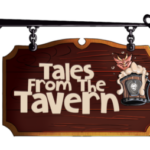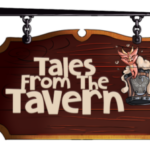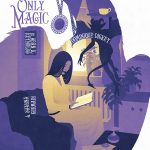Recently, the Shadomain Staff and some friends have been playing some Blades in the Dark by John Harper, published by Evil Hat. Here’s a brief description of the game from the official web site:
Blades in the Dark is a tabletop role-playing game about a crew of daring scoundrels seeking their fortunes on the haunted streets of an industrial-fantasy city.
https://bladesinthedark.com/greetings-scoundrel
With the first two sessions under our belts, Jason (the GM), Luna and Jamie “Moonchild” wanted to share some of their thoughts about the game system and how it’s been going.
1. We started with three possible scores:
- a ship comes into port with lots of cargo, the owners will be hiring porters to help unload goods.
- The crew is hired to terrorize an inspector who works on a train.
- The crew is hired to “destroy” a priest who is secretly running a heretical cult.
The first one was created by Jason, who is running the game, the second two were determined by random rolls on the score tables in the book. What did you think, either about the scores (number of them, interest in them), or about the idea of using random tables?
Luna: I really liked all of the ideas, but coming up with one on the tables was a really fun system. It could have caused mayhem, depending on what the options were. Having not seen the tables beforehand (or even after) made it cool because I had no idea what to anticipate.
Having multiple options to pick from was a good idea too. I like that it allows the group to discuss what the next score would be – as I suspect an “Ocean’s Eleven” style group would want to as they determine the next heist they want to pull when they have multiple options. It also allows for us to talk about potential pitfalls and challenges as we created multiple scenarios.
Jamie: All 3 scores sounded intriguing to me. Three scores is also a good number to choose from. Not too many, not too few. I’d be interested in trying the other two in future sessions. I like that each score presented us with different variables. The selling point for me on the third option was seeing a connection to my PC’s vice and heritage + the additional chance to leverage xp opportunities. Random tables makes for interesting plot twists. I was imagining what might happen if we needed to jump of [sic] the train.
Mike: I liked all the scores and wanted to do them all.
Jason: I like the idea of the players choosing from three possible scores. It’s enough that they feel like they have a real choice and at least one is likely to intrigue them, yet it’s not so many that they aren’t able to choose. As the campaign goes on the crew will have more allies and enemies, so potential scores will likely arise naturally from their continuing antics. The random tables work well especially when the crew is new.
2. During the score, the crew’s plan was going fairly well, then a guard returned with two blue coats [police officers]. What did you think about this complication?
Luna: It seemed like a logical complication to run into. The entire score seemed like it was going almost too well otherwise. I was glad for the additional challenge. The dice were in our favor that night, and it seemed like things were going too easily.
Jamie: I thought the two blue coats coming back added to our shenanigans. I can still see the image in my head of Whisper [Jamie’s character] holding onto the door knob trying to keep the blue coat and his club away from us while Bug [Luna’s character] clobbered the heretical priest. I kinda wish we stuck around to see the ghost of the little girl (forgot her name) scare the bejeezus out of him, but when Shade distracted them all with the bomb and his gun, we couldn’t pass up the opportunity to escape.
Mike: I think it was a wonderful surprise, I think the complication fit the situation we were currently in
Jason: The score was going pretty smoothly and as the players were new to Blades, I wanted to reinforce that this can be a deadly game, so this seemed like a natural thing to happen. This also shows that the rest of the city still acts on their own accord even when not interacting with the PCs.
3. Generally, what did you think about the session, or Blades in the Dark as a RPG?
Luna: The session was a lot of fun, and I’m enjoying how different Blades in the Dark is as a system from anything else I’ve played. The system for Flashbacks and how you prep your gear is very cool. I like how it allows you to essentially go back in time to problem solve.
Jamie: I’m really enjoying Blades in the Dark! I appreciate that it’s not a complicated rpg, like Shadowrun where I felt like I needed to study ahead of time. Blades in the Dark is easy to pick up and run with, especially with a GM who rolls with our shenanigans. I love that I can try to find a ghost as often as I want to try, unlike limited actions in D&D. We’ve had two sessions so far, and I have enjoyed them both immensely. I loved the flashback feature, especially because they reminded me of Life is Strange 1 and adds an interesting element to the game.
Mike: I think it’s fun! Not necessarily what I’m in to normally but the group makes it fun
Jason: I like how different Blades in the Dark is from many other RPGs I’ve played (granted there are many similar RPGs but this is the first time I’ve run one.) If you’re playing with long term players of games like D&D or Pathfinder, you might want to begin by letting them know how different this will be, so they aren’t shocked when they are thrown into the score without any chance to plan.
Overall, the group seems to be enjoying the Blades in the Dark system! Have you ever played Blades in the Dark? What are some of the things you did or didn’t like about it – leave us a comment below!










1 thought on “Campaign Diaries – Blades in the Dark”